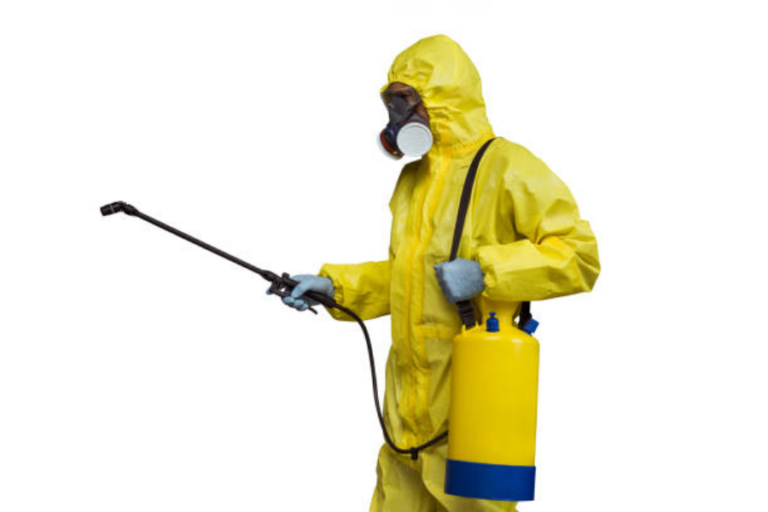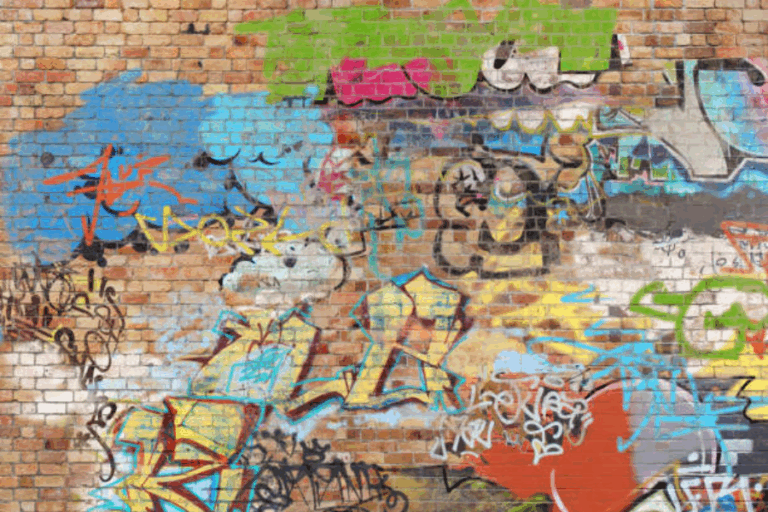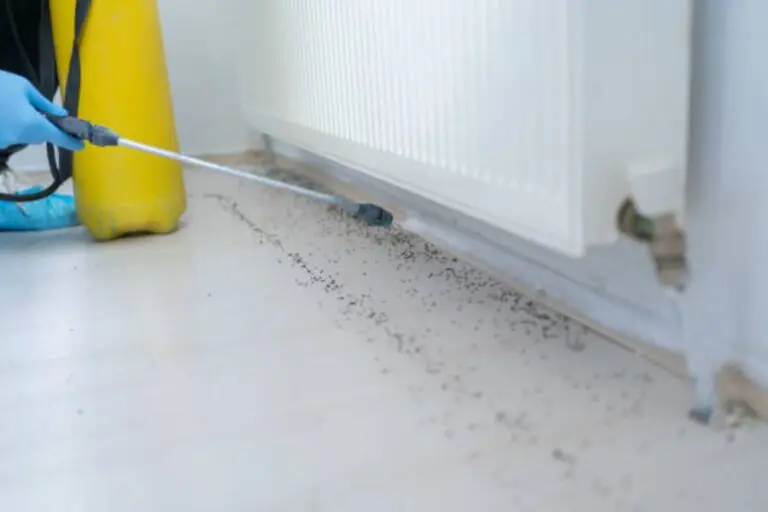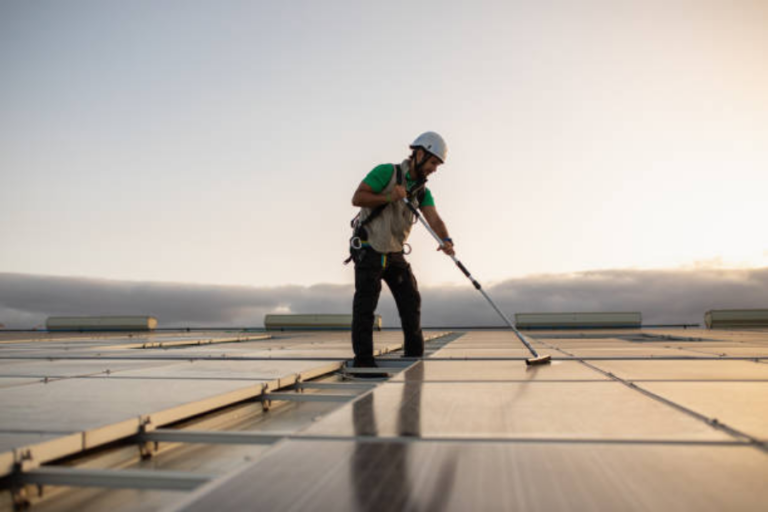Pressure Washing Your Driveway: Professional vs. DIY Approaches
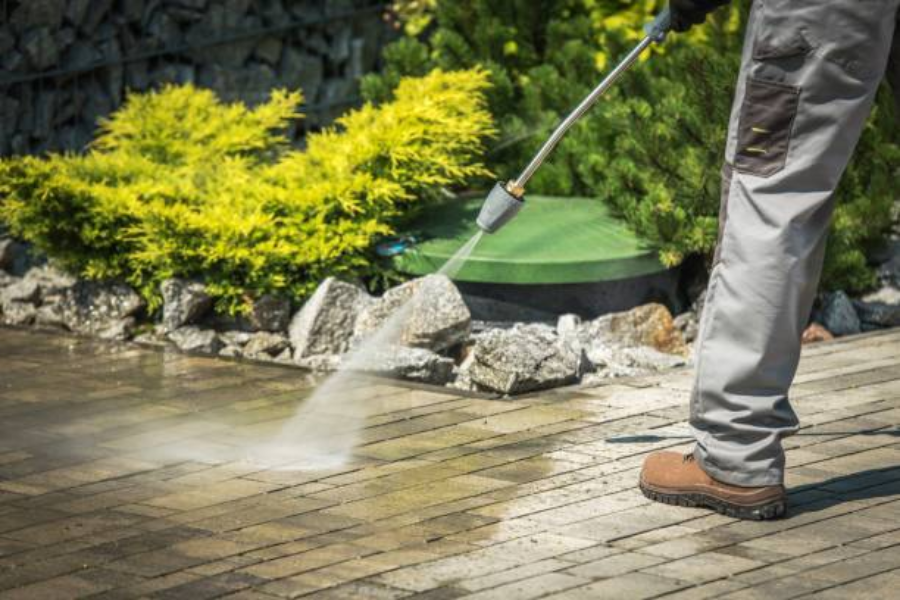
The Importance of Pressure Washing Your Driveway
In property maintenance, pressure washing your driveway has emerged as a widely adopted technique to restore curb appeal and maintain structural integrity. The process is often seen as a straightforward solution for eliminating built-up dirt, grime, and stains; however, it involves nuances that require careful attention. An exploration of this practice reveals that precision is essential, considering both the equipment settings and the material composition of the drive.
Understanding Driveway Materials
Driveway surfaces, typically constructed from concrete, asphalt, or pavers, respond differently to high-pressure water. When pressure washing your driveway, it is crucial to recognise these differences:
- Concrete: More durable, but excessive pressure can cause surface wear.
- Asphalt: Softer and more prone to damage from aggressive washing.
- Pavers & Brick: Require controlled pressure to avoid dislodging or surface etching.
Executing pressure washing your driveway with an understanding of these materials ensures that cleaning methods do not inadvertently accelerate surface degradation.
Optimal Equipment Settings for Pressure Washing Your Driveway
The configuration of pressure washing equipment plays a pivotal role in the outcome. Key considerations include:
- Water Pressure Calibration: Too high may cause damage; too low may be ineffective.
- Nozzle Selection: Broader spray patterns distribute pressure more evenly.
- Cleaning Attachments: Surface cleaners help maintain uniformity and efficiency.
Adjusting these factors ensures that pressure washing your driveway delivers effective results while preserving its structural integrity.
Pre-Cleaning Assessments and Preparations
Before pressure washing your driveway, a systematic assessment is recommended:
- Inspect for cracks or surface wear: These should be addressed before cleaning.
- Clear debris and obstacles: Loose particles can interfere with cleaning.
- Choose the right cleaning agents: Eco-friendly solutions minimise environmental impact.
Taking these precautions prevents damage and enhances the longevity of the driveway.
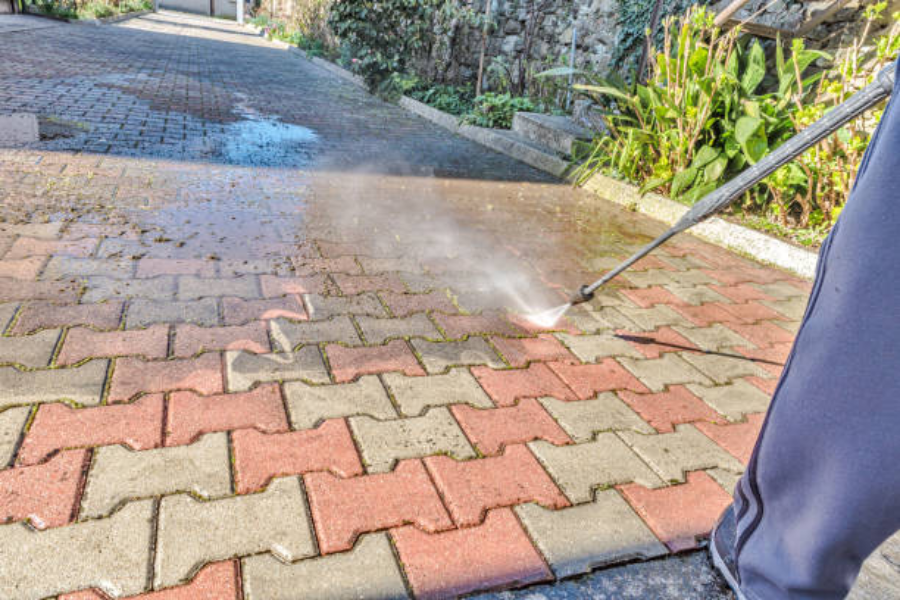
Techniques and Best Practices for Pressure Washing Your Driveway
The techniques employed in pressure washing your driveway significantly impact the results:
- Maintain a sweeping motion: Prevents water concentration that may lead to erosion.
- Start with a small test area: Ensure the correct pressure and technique are used before completing the application.
- Use overlapping strokes: Achieves even cleaning without streaks.
A consistent, controlled approach to pressure washing your driveway enhances effectiveness and minimises the risk of damage.
Environmental Considerations and Timing
The success of pressure washing your driveway depends on environmental factors:
- Avoid extreme heat: Prevents rapid evaporation that may leave a residue.
- Post-rain cleaning Can lead to prolonged moisture retention in porous materials.
- Choose mild weather conditions: Ensures optimal cleaning without unwanted effects.
Carefully timing the cleaning process maximises the benefits of pressure washing your driveway.
Choosing Between Professional and DIY Pressure Washing
Professional Pressure Washing: The Advantages
- Expertise & Experience: Professionals understand appropriate pressure settings and techniques.
- Advanced Equipment: High-end tools provide a deeper clean.
- Consistency & Reliability: Standardised processes ensure uniform results.
- Reduced Risk: Proper methods prevent surface damage.
DIY Pressure Washing: When Is It Feasible?
- Minimal Stains & Light Maintenance: Suitable for well-maintained driveways.
- Proper Equipment Access: Renting high-quality washers improves effectiveness.
- Knowledge of Techniques: Understanding correct pressure levels is crucial.
- Willingness to Invest Time & Effort: Requires patience and careful execution.
Choosing between professional and DIY pressure washing your driveway depends on factors such as driveway condition, equipment availability, and skill level.
The Complexity of Pressure Washing Your Driveway
Pressure washing your driveway involves a balance of multiple factors:
- Pressure Levels: Excessive force can cause damage, while insufficient pressure may be ineffective.
- Cleaning Technique: Controlled strokes ensure even results.
- Environmental Considerations: Proper drainage and eco-friendly detergents minimise impact.
Technological Advancements in Pressure Washing
Innovations are improving pressure washing your driveway efficiency:
- Automated Pressure Regulation Systems: Adjust settings based on surface type.
- Real-Time Monitoring Devices: Ensure consistency and prevent over-washing.
- Water Recycling Systems: Reduce waste and conserve resources.
Cost Analysis: Professional vs. DIY
- Professional Services: Higher initial cost, but provides thorough cleaning and long-term benefits.
- DIY Approach: Lower upfront cost but may lead to damage requiring costly repairs.
- Long-Term Savings: Regular professional maintenance extends driveway lifespan.
Environmental Sustainability in Pressure Washing
Sustainable practices are becoming increasingly common:
- Eco-Friendly Cleaning Agents: Reduce chemical runoff.
- Water Conservation Measures: Recycling systems minimise excess usage.
- Compliance with Regulations: Some areas enforce guidelines on water disposal.
Safety Considerations
Proper safety measures are essential for both professionals and DIY users:
- Training & Certification: Professionals undergo rigorous safety training.
- Protective Gear: Goggles, gloves, and non-slip footwear are essential.
- Automated Shut-Off Features: Prevents accidental high-pressure exposure.
- Ergonomic Equipment Designs: Reduces strain and fatigue.
Data-Driven Approaches to Pressure Washing Your Driveway
Technology is transforming pressure washing maintenance strategies:
- Sensor-Based Condition Assessments: Monitors surface wear over time.
- Digital Monitoring & Scheduling Tools: Helps plan regular maintenance.
- Performance Tracking: Data analytics optimise cleaning frequency and techniques.
The Future of Pressure Washing Your Driveway
Research and innovation continue to shape the industry:
- Standardised Protocols: Best practices are continually refined.
- Technological Integration: AI-driven tools and automated systems are emerging.
- Sustainability Focus: New materials and water-saving methods reduce environmental impact.
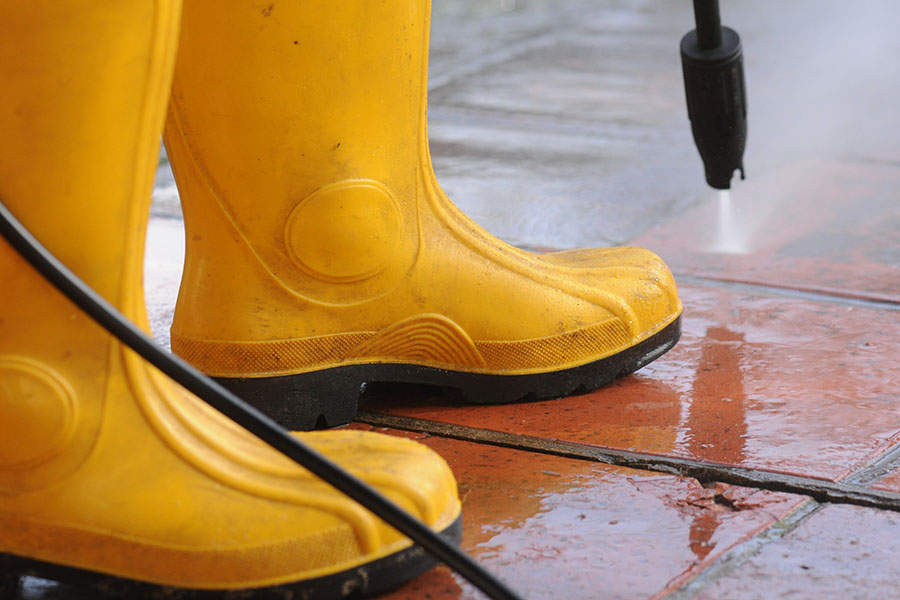
Best Practices for Property Owners
For optimal results, property owners should:
- Follow a Routine Maintenance Schedule: Quarterly or biannual cleaning prevents excessive buildup.
- Document Each Cleaning Session: Track pressure settings and cleaning agents used.
- Leverage Digital Tools: Mobile apps enhance maintenance planning.
- Invest in Training & Equipment: Ensures effective DIY cleaning.
Whether performed professionally or as a DIY task, pressure washing your driveway is essential for property maintenance. Property owners can make informed decisions to preserve their driveways’ longevity and aesthetic appeal by considering cost, effectiveness, safety, and environmental impact. Integrating best practices with innovations will continue improving the efficiency and sustainability of pressure washing your driveway as technology advances.
The Role of Seasonal Maintenance in Pressure Washing Your Driveway
Incorporating it into a seasonal maintenance routine is highly recommended to maximise the benefits of pressure washing your driveway. Environmental factors such as heavy rainfall, freezing temperatures, and prolonged sun exposure can accelerate surface wear and lead to persistent stains. Establishing a regular cleaning schedule—such as quarterly or biannual pressure washing—can prevent deep-seated grime buildup and reduce the frequency of intensive restorative treatments.
For example, in colder climates, pressure washing your driveway before winter helps remove contaminants that could exacerbate freeze-thaw cycles, preventing cracks and surface degradation. In contrast, cleaning the driveway during warmer months before periods of increased usage—such as summer gatherings or holidays—ensures a consistently well-maintained appearance.
The Influence of Property Type on Pressure Washing Requirements
Different properties have varying demands when it comes to pressure washing your driveway. Residential driveways, typically composed of concrete, asphalt, or decorative pavers, require a tailored approach to avoid damage while maintaining curb appeal. Commercial and industrial properties, however, often deal with heavier traffic and exposure to oil, chemicals, or other pollutants that necessitate more frequent and powerful cleaning solutions.
For homeowners, pressure washing your driveway is a practical measure to preserve property value and maintain a welcoming entrance. A more rigorous maintenance strategy involving professional services may be warranted in commercial settings, where first impressions and compliance with cleanliness regulations are paramount.
Addressing Common Misconceptions About Pressure Washing Your Driveway
Despite its widespread use, several misconceptions exist regarding pressure washing your driveway. One common myth is that higher pressure always results in better cleaning. Excessive pressure can erode surfaces, strip sealants, and cause premature wear. Another misconception is that pressure washing is an environmentally harmful practice. While traditional methods may have contributed to water waste and chemical runoff, modern advancements—such as biodegradable cleaning solutions and water reclamation systems—have significantly reduced environmental impact.
Additionally, DIY pressure washing your driveway is as effective as professional services. While a well-informed and cautious DIY approach can yield satisfactory results, professionals bring experience, specialised equipment, and advanced techniques that often lead to superior outcomes with reduced risk.
Evaluating the Future of Pressure Washing Your Driveway
The field of pressure washing your driveway is evolving alongside advancements in property maintenance technology. Future developments will focus on automation, sustainability, and enhanced efficiency. For instance, robotic pressure washers equipped with AI-driven sensors could soon offer a hands-free approach, optimising cleaning power while minimising resource consumption.
Additionally, smart monitoring systems may integrate with property management software, allowing homeowners and facility managers to track driveway conditions, schedule cleanings based on real-time assessments, and receive automated maintenance alerts. These innovations will improve the effectiveness of pressure washing your driveway and contribute to a more streamlined and eco-friendly maintenance strategy.
Making an Informed Decision: Choosing the Best Approach for Pressure Washing Your Driveway
Ultimately, the decision between professional and DIY pressure washing your driveway depends on factors such as budget, equipment availability, and the driveway’s condition. Those who opt for a DIY approach should invest time in understanding proper techniques, safety precautions, and appropriate pressure settings to avoid costly mistakes. On the other hand, professional services provide efficiency, expertise, and long-term value that may outweigh the initial cost.
Whatever the chosen method, pressure washing your driveway remains essential to property upkeep, ensuring aesthetic appeal and structural longevity. Homeowners and property managers can maintain pristine, durable driveways that stand the test of time by incorporating best practices, leveraging technological advancements, and adhering to environmentally responsible methods.
